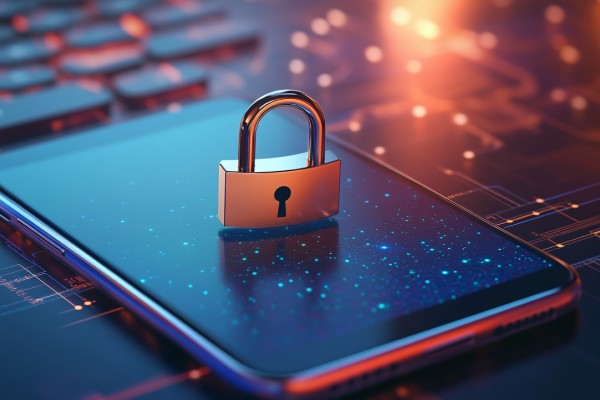10 Ways to Protect Your iGaming Activities


As the iGaming community in the U.S. continues to mature, it seems to be turning into the “Wild Wild West.” That’s to be expected anytime people transact any kind of financial business over the Internet.
If you have decided to join in the fun as an online casino gambler, it’s up to you to fully understand what’s involved in the process. At some point, you are going to be transferring money to fund your iGaming account. Your money transfer options will generally be limited to the same options you would use if you were paying for items from Amazon. You know, the usual suspects like credit/debit cards, PayPal, or perhaps some kind of bank transfer option.
It’s my desire to make sure you understand there is a very small risk related to getting involved with iGaming sites. With that said, there are plenty of things you can do to protect yourself. Let’s take a look at 10 Ways you can protect your iGaming activities.
1. Find the Safest iGaming Sites
In the U.S., only seven (7) states have legalized online casino gambling. That includes:
- Connecticut
- Delaware
- Michigan
- New Jersey
- Pennsylvania
- Rhode Island
- WEst Virginia
While this list is extremely small, it is sure to start growing soon as more state lawmakers embrace the value of bringing in more tax revenue.
If you live in a state that has legalized such activities, you’ll have several licensed iGaming operators from which to choose. Use one or more of them and only them. Why? They have been thoroughly vetted by state regulators and deemed safe and responsible.
If you live in a state that has not yet passed iGaming legislation, you have two (2) choices. You can drive to nearby states that have passed said legislation and open an account in that state. Unfortunately, you’ll only be permitted to use that account when you are physically located in that state.
Your other option will be using offshore operators. I would not recommend this because foreigners are afforded very few protections against rogue operators. If you must do this, choose offshore operators that seem beyond reproach based on online reviews and regulatory information.
2. Verify Operator Security Protocols
Once you have selected an operator or two, you’ll want to investigate the security features they use to protect customers. At a minimum, you’ll want to make sure the site’s entire iGaming platform is being protected by state-of-the-art firewalls and the latest in Secure Socket Layer (SSL) encryption technology.
As for the games being offered, you need to make sure that your operator of choice requires their software providers to have all games tested and certified as fair.
3. Activate Your Multifactor Authentication Function
Short of being techies, most people are unaware that their computers or gaming systems have an optional multi-factor authentication (MFA) feature. An MFA makes it necessary for users to always provide at least two forms of security identification info before getting access to secure sites. Make sure your MFA is turned on. If your iGaming site accommodates MFAs, you’ll get an extra layer of security protection.
4. Update Your iGaming Hardware & Software Frequently
To ensure you are getting access to the latest hardware and software updates, you can set your system to allow for automatic updates. As new operating system or iGaming mobile app updates are released, your system will detect them and automatically update what needs updating.
5. Avoid Phishing Scams
This one applies to everything you do online. Never click on a link if you don’t know where it’s coming from and going to lead. iGaming scammers are notorious for creating great-looking emails and advertisements that offer great bonuses and ways to win. Just get in the habit of deleting everything that stirs doubt in your mind.
6. Use Credit Cards – No Debit Cards
If you choose to use a credit or debit card to fund your iGAming account, I would truly like to recommend you take a hard pass on the debit card option. Do you really want to give a gambling site access to your bank account? No. If you use a credit card, you at least get some consumer protections that might help you get your money back if something goes awry.
7. Don’t Share Access to Your iGaming Account
It makes no sense to allow others to access your iGaming accounts. It would make it difficult to track who has been doing what and where the money has been going. The more people who have access to your security information will translate to more exposure of said information to outside sources.
8. Do Not Use Your True Identity Except When Necessary
When you register for an iGaming account, you will have to provide verifiable personal information such as age, TIN#, and address. Hopefully, that information will be adequately protected. As for what other players might see online, use avatars and user names that hide your true identity.
9. Do Not Tolerate Cyber-Bullying
If you find yourself playing online in a social situation, be prepared to block anyone who appears aggressive or too inquisitive. After you block them, report them to the operator.
10. Gamble Responsibly
As an adult, you are expected to use good judgment in everything you do. Online gambling is a fun and exciting form of adult entertainment until it isn’t. It stops being fun when people start losing more money than they can afford to lose. As a rule of thumb: Never wager anything beyond your discretionary income. Discretionary income is what’s left over after bills have been paid and savings set aside.
In conclusion, this information intends to help you protect yourself while gambling online. If you will take as many of these precautions as possible, it will increase the likelihood you can have fun and gamble with “peace of mind.